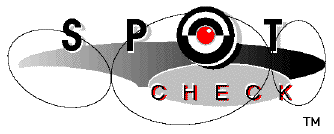| GenieWorks has employed the use of a third party
application called InterLok for our trialware and
authorization functions. There are a number of files and
folders that are created on the your hard disk as part of
InterLok’s operation. Here’s a list of the
files and their location: System
Folder:Preferences:Authorization Preferences:
This folder contains most
of the InterLok related files on an end user’s
system. This folder and its contents are created as
needed when any InterLok’s software is run.
Responses
& Serial Numbers
This human readable text
file contains a log of the end user’s machine unique
serial numbers. This file can be used by the user to
reconstruct their authorizations in the case where
they’ve been lost (perhaps if they performed a
device level format without backing up the various
InterLok backup files). To reenter a serial number, the
user can use the serial number hot keys as needed.
Authorization
Log
This machine readable,
encrypted file contains a log of important PACE
authorization activity. Primarily used for debugging,
this file logs all errors and significant events that
happen during authorization. This log file is
"circular", meaning that it is limited to 65k
bytes in length and it wraps, replacing older entries as
needed.
The format of the log file is
proprietary and can only be read by PACE. If you run into
problems that look like they are InterLok related, we
will likely ask you to provide us with a copy of the log
file.
Authorization
Temp
As protected software is
authorizing, the specific log information for that
software is contained in a temporary, uniquely named
"Authorization Temp" file. When authorization
is complete, the temporary file is merged into the main
"Authorization Log" file.
Registration:
If locked software has
registration turned on, a copy of its registration
information is stored in this folder in a file with the
same name as the product name.
Backup:
When authorization
information is written, it is backed up to visible,
encrypted files in this folder. The files have the same
name as the volume where the authorization change was
made. These backup files are only used if something
drastic happens to the user’s volume and they
didn’t backup the invisible backup file on the
volume itself (see below).
<<Authorized
Volume>>:Auth.bak
This invisible encrypted
file is located on the root of the user’s authorized
hard drive. Note that there is a carriage return at the
end of the name to guarantee that the user can’t
create a file of this name from the Finder. If the user
drastically changes their hard drive and the InterLok
authorization information is lost or damaged, we attempt
to restore from this backup file first. If this backup
file is not available, we will look in the "System
Folder:Authorization Preferences:Backup:" folder for
the backup file.
|


![]()
![]()